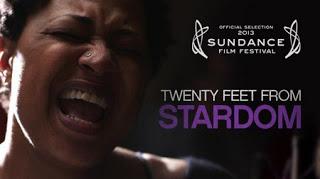The Vorpal Bunny: An Eastertide Post
The first church I served after surviving my M.Div. was in New Canaan, on what is known as the Connecticut Gold Coast. If you want some sense of New Canaan, take this concentrated website and add two parts water. Not every single household there is super-duper-duper wealthy (and, of course, not everyone there is a man with a cigar) but it is definitely a Yankee form of swanky.
My favorite Easter story comes from that year of ministry, with a man named John Gerlach. John was winsomely manic about his faith. He had left the craziness of the New York corporate world after Jesus found him, and he enjoyed stirring up holy mischief in this United Methodist parish. On Easter, wearing a huge grin, he greeted everyone coming in the door with “Happy Day of the Resurrection!” Loudly. With flourish. And, when people looked confused, he just kept going, on to the next person: “Happy Day of the Resurrection!” It was gauche to be too verbal about one’s religious convictions in New Canaan. And to be so fundamentalist as to believe in the physical resurrection of Jesus Christ was downright tacky. God bless weird John Gerlach. I have a hard time saying the words “Happy Easter” even today without feeling I am being hopelessly accommodationist.
George Lindbeck was one of my favorite professors at Yale, and two of my best Lindbeck stories involve Easter. I’ll tell the hard one first. Way back when I completed my dissertation, on which The Treachery of Love is based, George Lindbeck called me on the phone. He said such gracious things about the manuscript that I was genuinely confused. I didn’t realize I had written something so well worth reading. But he was concerned about a conspicuous lack of the Resurrection in the book – that is, a conspicuous lack of Easter joy. I had so focused on the cross that I missed the next chapter, so to speak. (George Pattison also wrote as much, in Danish, in his review of the book.) I will return to this detail later. For now, the second story is important.
As a second year M.Div. student (way before I ever read Kierkegaard) I was in a small seminar on ecclesiology. I think I was the only woman. And I was young. And confused. And when I am confused, I ask more questions. There were all of these unwritten assumptions going on in the seminar, and, at one point, while trying to understand something we had read, I used the word “symbol” in the same sentence with the word “cross.” Some of the students in the class gasped. I remember in particular the visiting scholar from Germany looking at me, visibly aghast. George Lindbeck ignored their remonstrations and tried to explain patiently the problem with seeing the cross as a symbol. I didn’t understand, so I asked more questions. Were the silly trappings of Easter the problem? Like, the bunny and the eggs and the bonnets? “No, no, no,” he said with a frustrated wave of his hand (confusing some of the dour students). “The bunny isn’t a problem. I don’t begrudge the children a bunny.” He then made up a précis of a symbol-cross Easter sermon – wherein the Resurrection is a symbol, an example, or an instance, of a universal experience of something or other. I finally got it! That is the problem with making the cross into a symbol. Whether on the grand scale (say, genocide) or the micro scale (say, domestic abuse) human horror is not the cross, and human redemption is not “the Resurrection.” “Oh! That is the deadly bunny with the teeth!” It was the only time I made George Lindbeck LOL. (See this grisly video if you are as lost as the German scholar was.) Making the Cross and the Resurrection into symbols might seem nice and cuddly and furry, but it is a dangerous shift in meaning. (This makes George Lindbeck into the character with the strange, horned hat in the skit. And Pierre Teilhard de Chardin into the foolish knight, maybe?)
When John Gerlach went around scaring people with “the Resurrection” that Easter Sunday in New Canaan, he was trying to take the symbol out of their Easter. He was declaring with annoying repetition that, when United Methodists say “The Lord is Risen Indeed!” we don’t mean that some concept of human hope is irrepressible. We don’t mean that some vague sense of the human spirit is floating above the particulars of our bodies and delights and predicaments. We mean that Jesus Christ is Risen, from the dead. This crazy fact matters for our matter. But, if we make the cross into a symbol of some facet of something called human experience, or human history, or evolutionary theory, or the resilience of democracy, etc, then we make Jesus a malleable, useful thing for our projects. That is the bunny with the teeth.
Now, for the harder part. What George Lindbeck said about my first book was right, in retrospect. Trying to name Easter joy has been hard for me. I wasn’t sure how to name Resurrection hope without betraying what I thought was my inescapable commitment to a very hard marriage. The Resurrection is not symbolic, I got that. Check. But I wasn’t sure how to sort through the fact of God’s redeeming grace for my own life. If Easter involves literal freedom from a literal tomb, and the redemption of our actual bodies, what did that mean for the actual me? I didn’t know how to think that and still remain married.
Thinking right alongside the literal Resurrection of Jesus is messy, and confusing. My daughter Emily made this point when she was about three years old. Our dog Ernie was on his last leg. He had lost control not only of his bladder but of his bowels, and we were doing doggie hospice at our house. Emily asked me if Ernie would be in heaven. She then asked if Ernie would be chasing squirrels in heaven. And, would Ernie be eating in heaven? This led to her inevitable conclusion that there would be pooping in heaven, and that it would all be somehow ok. It turns out, reckoning with how God might redeem my own poopy life was much harder for me to do than to affirm the physical resurrection of Jesus for my dead dog.
It is still easier for me to name a theological impulse gone wrong – making the Resurrection a symbol – than to live into the very weird affirmation that “The Lord is Risen Indeed!” But, three years out from divorce, I am beginning to risk it. I am beginning to believe that, when Jesus Christ came out of that tomb, he brought me with him, even now, even here.
We sang a song at Trinity United Methodist on Easter Sunday that had awkward words and an unfamiliar tune. (Our ambitious new music director is stretching us, hard.) The hymn is by John Bell, and it is in the little, black paperback hymnal that we have to share awkwardly with our neighbors in the pew (because there are fewer copies than the red, hardbound hymnal). The hymn is called “Christ Has Risen,” and I have been singing a phrase from it while sweeping and washing dishes. “Christ has risen and forever lives to challenge and to change all whose lives are messed or mangled, all who find religion strange.” I am not sure about Bell’s use of the word “religion.” But I do know that this faith I am called to preach is strange. And I know my messed and mangled life has been challenged, and is being changed.
So, “Happy Day of the Resurrection!” Indeed.



